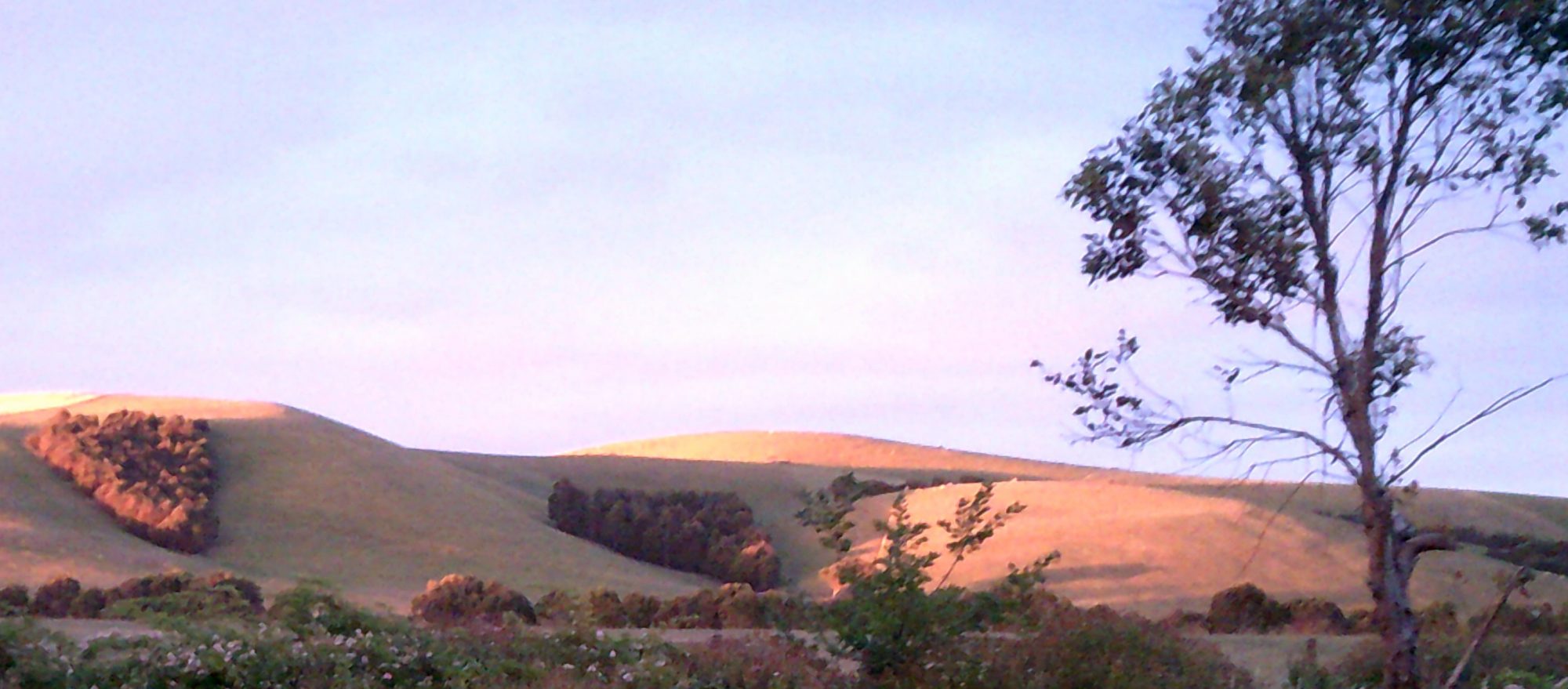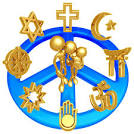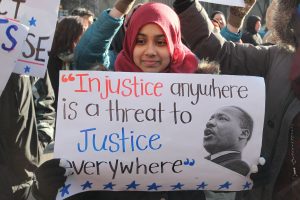The War on Islam?
Labelled as a conspiracy theory, the War on Islam has been perpetrated by a number of political and social theorists. The term can refer to any acts that involve military, economic, social, cultural harm or any discursive means to undermine sovereignty and/or authority, like creating a negative public image, swaying public opinion with propaganda or fabricating stories about individuals and events. In particular, the term is said to have come from Islam and pertains to accusations that the west is imposing its modern secularized ideas onto the traditional Islamic way of life. However, the War on Islam is much more than an idea or a political discourse, it has led to real wars, genocides, massacres, immense poverty and human displacements. Juxtaposed is the western point of view, whereby The War on Islam has been converted into the western declaration of a War on Terrorism. This syllogism has been used mainly to identify key Islamic insurgents such as Sayyid Qutb, Ayatollah Khomeini, Anwar al-Awlaki and Osama bin Laden, all of whom are said to have raged a War of Terror on the capitalist west. Sadly, there is little public knowledge on the history that cause these key figures to turn to terrorism. By definition, terrorism is about inflicting terror, but it is also about having been terrorized. In order to understand these dynamics, we must go back to the source of terror that has been imposed on Islam in the past.
When we think about terrorism our minds hark back to the events of September 11th and the attacks on the Twin Towers of the World Trade Centre. Since 9/11, hundreds of Americans and people residing inside the United States have been charged with jihadist terrorism or related crimes, or have died before being charged, but were widely reported to have engaged in jihadist terrorism. The rise of ISIS brought a surge in terrorism across the world, although there have been cases every year since 9/11 that were not so widely acknowledged. As the years have passed and since the peak of ISIS, the group’s influence has greatly diminished and the number of terrorism cases has actually declined.[1] What has not declined is the targeting of innocent Muslims who have nothing to do with terrorism and just want to get on with their lives.
Today, Muslims live in many parts of the world and there is a view that they should assimilate into the western culture. Those who are charged with trying to make this happen seem not to understand that Islam is very different in its social order and requirements to that of the west. Added to this, some aspects of the western culture have found their way into the Islamic countries and caused a split between the ideas of the establishments and the new generations, this in turn has added to the tension between east and west.
The west has rejected the idea that power should rest in the hands of religious leaders, European history has already had this experience at the time of the reformation. Islam is also having a reformation, but it is not one major event, rather the reforming of Islam has been constant. Within its own religious context Muslims have probably been subject to more reforms that any of nation. Reform is an integral part of Islams history. The greatest of all reformers was the Prophet Muhammad (PBUH). The early community attempted to improve their life-world by establishing Islam, which is in effect a reform movement in its own right. This was supported by Hadith claims that in every century, God would send a leader who would renew the religion. The concepts of reform (islah) and renewal (tajdid)[2] are taken directly from the Qur’an and the Sunnah of the Prophet and both involve a return to the fundamentals of Islam.[3] However, the idea was not to move away from the ideas of Islam, but to appropriate modern ideas within the Islamic framework.
The problem incurred from the west lies in the inception of modernism, which has its roots in nineteenth century colonialism. This caused a dramatic decline in the Islamic economies. Muslims became totally subordinate to western domination. Europe was deeply embedded in the new sciences, which were actually not new at all they were implicitly lifted from the historical contributions made by Muslims. The fact is, Islamic science was robust when Europe was still in the Dark Ages. These sciences included mathematics, geometry, algebra, medicine astronomy and religious life. Reforms gave power to women long before the west’s suffragette movement.
It is true that many Muslims cannot support the idea of a secular society and the most radical of groups such as Hisb al-Tahrir are hoping to reinstate a Caliphate and gain global dominance. Some countries have installed Islamic States and/or theocratic republics that range from the monarchy of Saudi Arabia to the religiously dominated governments of Pakistan, Iran Afghanistan, Turky, Bangladesh, Maylasia, Indonesia and Sudan, most with autocratic regimes propped up by the military. The west has played a crucial part in the birth of these regimes through years of colonialism. Yet, today, this has seen the west entering into new crusades based on the notion of turning these states into democracies. Indeed, there is an ongoing assumption that democracies are the ideal system for any country wishing to join the New World Order, but realistically, most democracies are plagued with self-interests, corruption and failure to serve those who vote them in.
In studies on conflict the philosopher Charles Peirce uses semiology (the theory of signs) to understand and to clarify the problems of conflict. Peirce draws on a theory of signs to identify the dynamics of hostile engagement. Hitherto, I shall apply Charles Peirce’s theory of signs to simplify and re-frame the Western and Middle Eastern problem.
First let us look at some of the characters already mentioned in their historical context. Sayyid Qutb was a member of the Muslim Brotherhood, a Sunni Islamic organization founded in Egypt by the Islamic scholar Hassan al-Banna in 1928. Sheikh Hassan Ahmed Abdel Rahman Muhammed al-Banna was an Egyptian schoolteacher and imam, and one of the most influential Islamic revivalists.[4] He published his treatise “On Jihad” in the late 1930s and it “became a required part of the Muslim Brothers’ curriculum.” [5] The main translation can be found in Wendell’s 1977 collection, Five Tracts of Hasan Al-Banna (1906-1949).[6] Al-Banna’s writings marked a dramatic shift in Islamic intellectual thought by presenting a modern Islamic ideology. He designated the Qur’an to be the only acceptable guide to life and he promulgated the total Islamization of the state, the economy, and society. He declared that establishing a just society required development of institutions and progressive taxation, and elaborated an Islamic fiscal theory where zakat (taxes) would be reserved for social expenditure in order to reduce inequality. Al-Banna strongly criticized Western materialism, consumption and rigorous competitiveness. He condemned British imperialism, and the traditionalism of the Egyptian ulema (a body of Muslim scholars who are said to have specialist knowledge of Islamic sacred law and theology). Al-Banna’s ideas appealed to Egyptian and pan-Arab patriotism, but he rejected Arab nationalism and regarded all Muslims as members of a single community.[7]
Al-Banna’s work and that of his contemporary Sayyid Qutb need to be viewed in the context of an Arab Middle Eastern struggle for independence. The rule of Ottoman Albanian commander Muhammad Ali established a dynasty in 1805 that went on to reign until 1953. It was informally part of the Ottoman Empire. In 1859-69 the Suez Canal was built, but it and other infrastructure projects ruined the economy of Egypt and lead to a gradual occupation by the British. In 1882 the British troops defeated the Egyptian army and took complete control of country. Egypt then became a British protectorate in 1914 at the start of the First World War. During the war Britain mustered its forces to guard the Suez Canal against invasion. The Egyptian Expeditionary Force (EEF) was a British Empire military formation, formed to accomplish that role, It was established on 10 March 1916 under the command of General Archibald Murray from the Mediterranean Expeditionary Force and the Force in Egypt (1914–15), at the beginning of the Sinai and Palestine Campaign.[8] Fierce battles ensued before the defeat of the German and Turkish forces further crippling the Egyptian economy and the peoples’ spirit. After the 1914 Egyptian independence was restored, but the British influence remained strong until the 1950s. Importantly, at this time there were many changes occurring in Britain and the United States and Qutb believed the western influence was having an impact on the Egyptian monarchy. Sayyid Qutb visited America to see what was happening and what he witnessed disturbed him. What he saw was America’s materialist and violent society, obsessed with sexual pleasures. Qutb spent two years pursing studies in educational administration. Over two years, he worked and studied at Wilson Teachers’ College in Washington, D.C. He visited the major cities of the United States and spent time in Europe.
America had a profound influence on Qutb’s thoughts and he wrote about it. Qutb noted with disapproval the openly displayed sexuality of American women: He showed how the American girl is well acquainted with her body’s seductive capacity. “She knows it lies in the face, and in expressive eyes, and thirsty lips. She knows seductiveness lies in the round breasts, the full buttocks, and in the shapely thighs, sleek legs – and she shows all this and does not hide it”. [9] He also commented on the American taste in arts and disapproved of them.
Before visiting America Qutb had enjoyed the western classics, but the realities of a changing western world were too much for him. On his return to Egypt, Qutb published “The America that I Have Seen”, where he became explicitly critical of things he had observed, materialism, individual freedoms, the economic system, racism, divorce, sports such as boxing and the interaction between men and women. He also objected to the strong support the United States gave to the new State of Israel. [10]
On the 29th August 1966, Sayyid Qutb, was executed for his role in an alleged plot to overthrow the government of President Nasser, but he has remained a hero to those Muslims America refers to as Jihadists and he is said to be the father of Islamic fundamentalism. He is believed to have been the inspiration behind the fight in Syria and the massacres in European cities. His book, known in English either as Milestones or Signposts, is described as being to militant Islam what Das Kapital was to communism or Mein Kampf was to Nazism. It has certainly influenced generations of Islamic fundamentalists, including Osama bin Laden and Ayman al-Zawahiri.[11] However, author James Nolan, who writes about Qutb in his book What They Saw in America, says the Egyptian struck him as an unlikely candidate to be an Islamic terrorist. He was educated, a consumer of classical music, an intellectual.[12] In Nolan’s book the story of Qubt is one of an existential crisis. while trying to determine whether he was going to be a true Muslim or if he was going to give way to what he called jahiliyyah—a departure from true Islam,’ Nolan explains. “This was tested one night in his cabin on a ship when a woman came to his door semi-naked. She asks if she can spend the night with him.
“True to his resolutions, he says no and he shuts the door. Then he hears her collapse outside the door in a drunken state”. Qutb sees this as an example of him keeping to his determination to stay true and not get into western sexual mores. This was believed to have radicalized Qutb. Nolan goes on to suggest there were already seeds of discontent due to the Egyptian complacency with British colonization.
When Qutb went back to Egypt, he joined the Muslim Brotherhood and helped in the overthrow of the monarchy. Later, under the government of the secular nationalist Gamal Abdel Nasser, he was thrown in jail for his extremist activities.
At 3:00am on 29 August 1966, Sayyid Qutb was hanged in Egypt for his part in a conspiracy to assassinate Nasser, though Nolan says the trial was really based on his book.
Al Qaeda and Islamic activists have been very much influenced by Qutb’s writings and his life. Nolan states, .’I think we need to understand him. You don’t have to agree with him to understand him.’[13]
In this last and final part of this study, Al-Banna wraps up his essay by addressing contemporary arguments against the obligation for violent jihad. In a passage that could have been written by any online jihadi today, Al-Banna dismisses the “greater” vs” lesser” jihad argument. In a fascinating reversal of tactics, it’s Brotherhood members themselves who use the “greater vs lesser” argument to deflect criticism from non-Muslims. [14]
Al-Banna’s teachings spread far beyond Egypt, influencing today various Islamist movements from charitable organizations to political parties. The English-language political neologism of “War on Islam” was coined in Islamist discourse in the 1990s and popularized as a conspiracy theory only after 2001.[12] Jonathan Schanzer has argued that the historical Muslim indifference to the West turned to “alarmed dislike” with the beginning of Western military superiority in the 17th century. This is when Europe was coming into its own intellectually and scientifically. There was fierce competition between beliefs with Islam being perceived as threatening to both the monarchy and the Christian hierarchy. However, with the end of the era of Western colonialism, rage against non-Muslims and the governments of Muslim-majority countries stemmed, not from alleged non-Muslim aggression and enmity, but allegedly from frustration over the unrelenting encroachment from Western culture. This encroachment has never ceased. [13]
[1] https://www.newamerica.org/international-security/reports/terrorism-in-america/terrorism-cases-2001-today
[2] Ibid p 90
[3] Qur’an 7. 170; 11. 117; 28.19.
[4] Making Sense of Jihad. https://web.archive.org/web/20090902105703/http://www.makingsenseofjihad.com/albannas_on_jihad/
[5] Iibid.
[6] Ibid
[7] Ibid
[9]“‘Qutb: Between Terror And Tragedy’ by Hisham Sabrin”. Archived from the original on 27 September 2007. Retrieved 17 June 2006. quoting Hourani, A. Arabic Thought in the Liberal Age: 1798–1939. Cambridge University Press, 1962. and Mitchell, Richard S. The Society of The Muslim Brotherhood. Oxford University Press, 1969.
[10]https://en.wikipedia.org/wiki/Sayyid_Qutb#Two_years_in_the_United_States
[11] https://www.abc.net.au/radionational/programs/latenightlive/how-living-in-america-changed-islamic-fundamentalist-sayyid-qutb/7800676
[12] Ibid
[13] James Nolan What They Saw in America, Williams College, Massachusetts. Publisher: Cambridge University Press; Online publication date: April 2016; Print publication year: 2016 …


